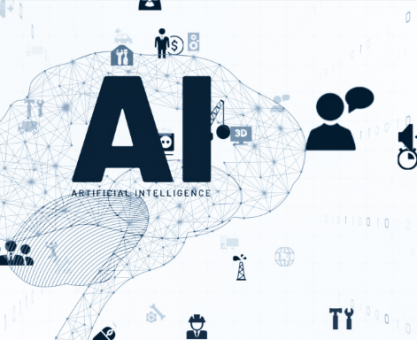Executive Summary
-
Explore how AI-driven risk assessment is transforming wealth management.
-
Understand the benefits of AI in delivering real-time, data-driven insights.
-
Identify the challenges and considerations when implementing AI technologies.
-
Discover a step-by-step guide for integrating AI into risk management strategies.
-
Gain insights from a real-world case study demonstrating successful AI adoption.
Introduction
In the fast-evolving world of wealth management, traditional risk assessment methods are being challenged by the advent of artificial intelligence (AI). Wealth managers are under increasing pressure to offer precise, data-driven insights to their clients, which is where AI steps in. This article delves into why AI-driven risk assessment is essential for wealth managers, how it can enhance decision-making, and what you need to know to leverage this technology effectively. By the end, you’ll understand the transformative power of AI in risk assessment and how it can provide a competitive edge in wealth management.
Definitions / Context
AI-driven risk assessment refers to the use of artificial intelligence technologies to evaluate potential risks in investment portfolios. This involves analyzing vast datasets to identify patterns and predict future market behaviors. Traditional methods rely heavily on historical data and human judgment, whereas AI offers a more dynamic and real-time analysis.
Benefits / Pros
-
Real-Time Analysis
AI can process data continuously, offering up-to-the-minute risk evaluations. -
Data-Driven Insights
Leverage machine learning algorithms to uncover insights hidden in large datasets. -
Improved Decision Making
With precise risk predictions, wealth managers can make more informed decisions. -
Customization
AI tools can tailor risk assessments to individual client profiles and preferences.
Risks / Cons / Challenges
-
Implementation Costs
High initial investment in AI technology and training. -
Data Privacy Concerns
Handling sensitive client data requires stringent security measures. -
Reliance on Technology
Over-dependence on AI may lead to overlooking human judgment. -
Regulatory Compliance
Navigating complex financial regulations when using AI technologies.
How to Integrate AI into Risk Management
-
Assess Current Processes
Identify existing risk assessment methods and their limitations. -
Select the Right AI Tools
Research and choose AI solutions that align with your business needs. -
Pilot Testing
Implement AI on a small scale to test its effectiveness and gather feedback. -
Training and Development
Train staff to utilize AI technologies effectively. -
Full Implementation
Roll out AI solutions across the organization, ensuring continuous monitoring and improvement.
Real-World Example: A leading wealth management firm implemented an AI-driven risk assessment tool to enhance their portfolio management. By utilizing AI, they reduced risk exposure by 15% and increased client satisfaction scores by 20%. The firm attributes its success to improved accuracy in predicting market fluctuations and personalized client strategies.
Case Study: Leading Wealth Management Firm
Expert Tips / Strategic Insights
-
Epiidosis recommends regularly updating AI algorithms to adapt to changing market conditions.
-
Stay Informed
Keep abreast of the latest AI advancements and regulatory changes. -
Balance AI with Human Insight
Ensure a blend of technology and human expertise for optimal decision-making.
Tools / Resources / Calculators
-
AI Risk Assessment Platforms
Explore options like IBM Watson and Bloomberg Terminal. -
Online Courses
Platforms like Coursera offer courses on AI in finance. -
Data Analysis Tools
Utilize tools such as R and Python for advanced data analysis.
Conclusion
AI-driven risk assessment is proving to be a revolutionary tool for wealth managers, offering enhanced accuracy, real-time insights, and customized strategies. While the integration of AI presents challenges, the benefits far outweigh the risks, providing a significant competitive advantage. For wealth managers eager to stay ahead, embracing AI technologies is no longer optional but essential.























